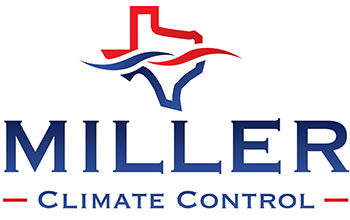
The global growth of COVID-19 has likely shifted your regular schedule upside down.
When times feel uncertain you can feel good in knowing your residence is your safe space. You’re probably spending more time there today. As a result, your indoor air quality is now more critical than ever.
Did you know we can install indoor air quality products in your house that offer hospital-grade filtration? These solutions can clear bacteria from your air, as well as allergens, odors and volatile organic compounds (VOCs).
Up-to-date houses are securely sealed, which is good for energy efficiency. But it also means your inside air might be worse than the air outside. In fact, the EPA says it can be two to five times worse than outdoors. This could be problematic since we spend about 90% of our lifetime indoors.
There are many elements that can cause poor indoor air quality, like cleaning products and air fresheners. These might create headaches and exasperate allergies and asthma.
There are a few things you can do to enhance your air quality. Some include upgraded air filters, an air purification system or an ultraviolet (UV) germicidal light.
Unsure which solution is right for your residence? Our skilled techs can perform an indoor air quality audit. Based off of the results, we can then advise you on the ideal choice for your home’s distinctive needs.
Keep on reading to learn more about the air quality solutions we provide.
Air Filtration
When browsing air filters, it’s essential to consider the MERV rating, or Minimum Efficiency Reporting Value. This gauges how effectively it filters air.
One of the most ordinary and most economical filters, flat fiberglass filters, are rated between 1 and 4 on the MERV scale. Pleated filters are slightly better, ranking between 8 and 12.
We recommend getting at minimum MERV 13, like the HC13 Media Air Cleaner, for the optimal results. This filter delivers fresher air while lowering energy consumption.
High Efficiency Particulate Air (HEPA) filters are regarded as the benchmark in air filtration, since they’re typically in use in hospitals. They’re effective at capturing 99.97–99.99% of indoor pollutants, including pollen, pet dander and smoke.
In advance of getting an enhanced filter, contact us at 512-937-2001. Our pros can help you choose the most ideal solution for your equipment.
Air Purification
Lennox offers some of the most advanced air purification equipment you can get. PureAir™ S and Healthy Climate™ PureAir Air Purification Systems deliver hospital-grade filtration while managing all categories of indoor air contaminants.
This powerful equipment can eliminate:
- 99.9% of allergens, such as pollen, dust and pet dander.
- 95% of bacteria-sized particles, including ones that contribute to strep throat.
- 50% of VOCs and odors within 24 hours.
UV Germicidal Lights
A UV germicidal light is placed within your HVAC system. Its powerful rays eradicate bacteria and mold within seconds.
If your family suffers from allergies or asthma, this equipment may deliver relief. Especially if you live in a humid part of the country where bacteria and mold thrive.
This light also offers an extra advantage for your HVAC unit. It might help it run for a greater period of time and run more efficiently, as it keeps the internal parts clean.
Our air quality engineers advise combining one of these lights with an upgraded filter, such as our Carbon Clean 16® Media Air Cleaner, for the greatest effect. This filter provides industry-leading MERV 16 filtration combined with carbon-coated fibers to remove particles from your residence’s air. It fulfills this without limiting your HVAC system’s airflow.
Whole-Home Humidifiers
Having balanced humidity in your residence may help keep your loved ones in good health when it’s cold. It can assist with sore throats, itchy skin and peeling lips, in addition to added cold weather irritations.
If you don’t know what your residence’s humidity level is, we’ll measure it when we complete your indoor air quality audit. While the range fluctuates based upon outdoor temperatures, HVAC professionals generally advise keeping it between 40–60 percent.
You can achieve this ideal range by installing a whole-home humidifier. This equipment generally accompanies your furnace or air handler to give the right level of humidity throughout your house. Some equipment, like the Healthy Climate® Whole-Home Power Humidifier, have an included fan to spread humidity while your comfort equipment isn’t running.
Turn to the Pros for Your Indoor Air Quality Necessities
At Miller Climate Control LLC, we’re dedicated to making your home more comfortable. That’s why we sell Lennox air quality products, which are the most comprehensive solution on the market.
We’re also more than only your heating and cooling company. We’re concerned about the wellness of you and your family. That’s why we’re taking extra precautions when we arrive at your residence.
To find out more about our air quality solution, get in touch with us at 512-937-2001 or contact us online. Our friendly staff can also handle any worries you can have with a tech visiting your home today.
—
*Based on in-duct testing that shows Healthy Climate® filters reduce airflow restriction. Greater restriction of airflow creates a greater load on a unit’s fan motor, increasing energy consumption.

